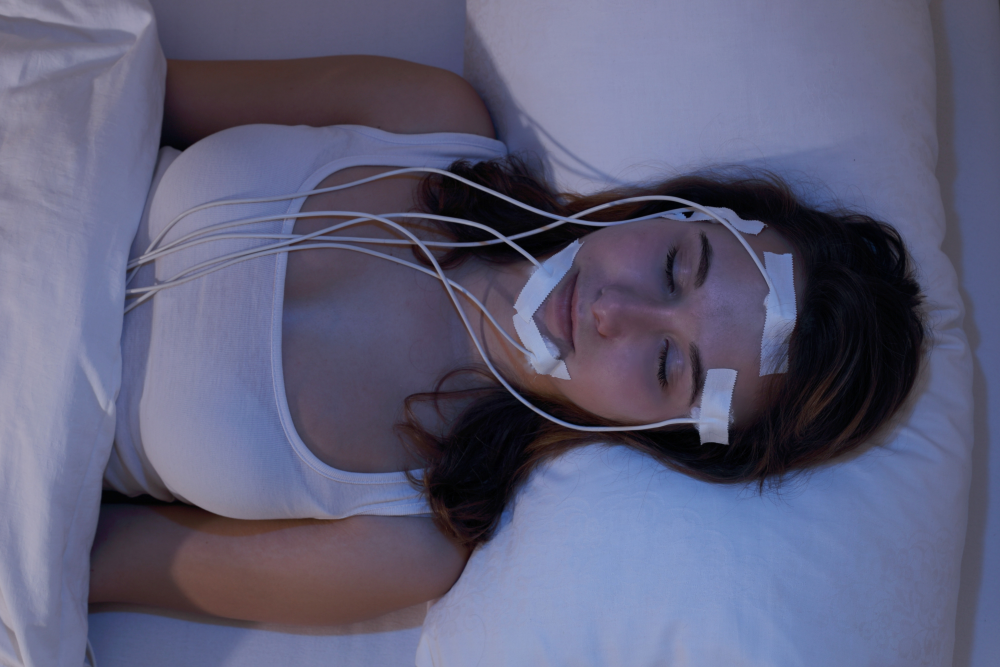Sleep is an essential part of our daily routine. Quality sleep might also be a critical factor in maintaining good health. However, many people suffer from sleep disorders that can lead to serious health problems. A sleep study is a diagnostic test that can help identify the cause of sleep disorders and prevent the development of diseases.
What is a sleep study?
A sleep study, also known as a polysomnography, is a non-invasive test that measures various physiological parameters during sleep. The test is usually conducted in a sleep laboratory, where you spend the night hooked up to various sensors that monitor brain waves, heart rate, breathing, and other vital signs.
During the test, you are observed by a sleep technician who records any abnormal behavior or movements. The data collected during the study is then analyzed by a sleep specialist who can diagnose any sleep disorders and recommend appropriate treatment.
Why are sleep studies important?
Sleep studies are important for disease prevention because they can identify underlying health problems that may be causing sleep disturbances. For example, sleep apnea is a common sleep disorder that is characterized by pauses in breathing during sleep. This condition can lead to high blood pressure, heart disease, and stroke if left untreated.
Other sleep disorders, such as insomnia and restless leg syndrome, can also have negative effects on health and quality of life. By identifying these conditions early on, patients can receive appropriate treatment and prevent the development of more serious health problems.
In addition to diagnosing sleep disorders, sleep studies can also help identify lifestyle factors that may be contributing to poor sleep quality. For example, excessive caffeine intake, alcohol consumption, and smoking can all disrupt sleep and lead to health problems.
Overall, sleep studies are an important tool for disease prevention and can help individuals maintain good health and quality of life. If you are experiencing sleep disturbances or have concerns about your sleep quality, talk to your healthcare provider about the possibility of undergoing a sleep study.
Other articles you might like:
Exploring the Connection Between Cortisol, Stress, and Overall Health
The “Longevity” game is not about living long, but living “well”. And the hidden player calling the shots might be cortisol, aka the stress hormone. As stress permeates our lives, its effects on our overall health become increasingly apparent. In this article we will...
Polyphenols: Health Benefits and Food Sources
I have long believed that a diet of fruits, vegetables, and seeds had a positive impact on overall health. A great example are studies looking at people who eat a Mediterranean diet (diet with a high concentration of fruits, vegetables and legumes). The reason might...
The Bleeding Edge: Film Review
We now live in an era where there is a medical device for most problems. Case and point, we can now replace a “degenerating hip”, fix a “dysfunctional heart”, prevent an unwanted pregnancy, “lift” a falling organ, drain unnecessary fluid from the central nervous...
Antioxidants: A beginners guide to understanding these powerful chemicals
Cardiovascular disease and cancer are responsible for 44% of deaths in the US. 6.2 million Americans are living with Alzheimer’s disease and nearly 1 million with Parkinson’s disease. All of these diseases have one thing in common, oxidative stress. But there is...
Turmeric: Health Benefits and Food Sources
There is a growing interest in people wanting to take control of their health and “longevity”. With this in mind, curiosity is growing surrounding the best “diet” for overall health and disease prevention. And of course, the jury is still out on whether or not there...
What sugar really does in the body
Is sugar really "bad"? I know most of us have been told that this is the evil of all evils when it comes to "health". But not so fast. Not all sugar is created equal. Sugar is one "type" of carbohydrate. And yes, some carbohydrates might not be optimal in some...
A Guide to Magnesium: The Mineral That Can Do a 180 on Your Health
Magnesium is an essential nutrient required to maintain overall health. However, nearly half of Americans don’t meet daily magnesium intake recommendations. Magnesium deficiency is associated with several diseases. It is vital to ensure your food intake boosts the...
Managing Stress with Diabetes Made Easy: Tips That Tip the Scale in Your Favor
Over 537 million people around the world live with diabetes. The condition affects a whopping 10.5% of the adult population, and there’s no denying how difficult it can be to manage it. One day, you’re living life to the fullest—eating your favorite cake, regularly...
Mindfulness: Health Benefits and Getting Started
Understanding Mindfulness, Its Benefits, and How To Get Started Mindfulness. We hear this word so often that it’s easy to dismiss it as the latest New Age fad. But before dispensing with the idea altogether, consider that mindfulness-based cognitive therapy has been...
The Minimalist: Less Is Now Review
In a world overwhelmed by the ceaseless noise of consumerism and material excess, there is a growing trend of people transitioning toward the perceived gateway to profound well-being. Minimalism, is fast becoming an appealing lifestyle that adopters believe has some...











